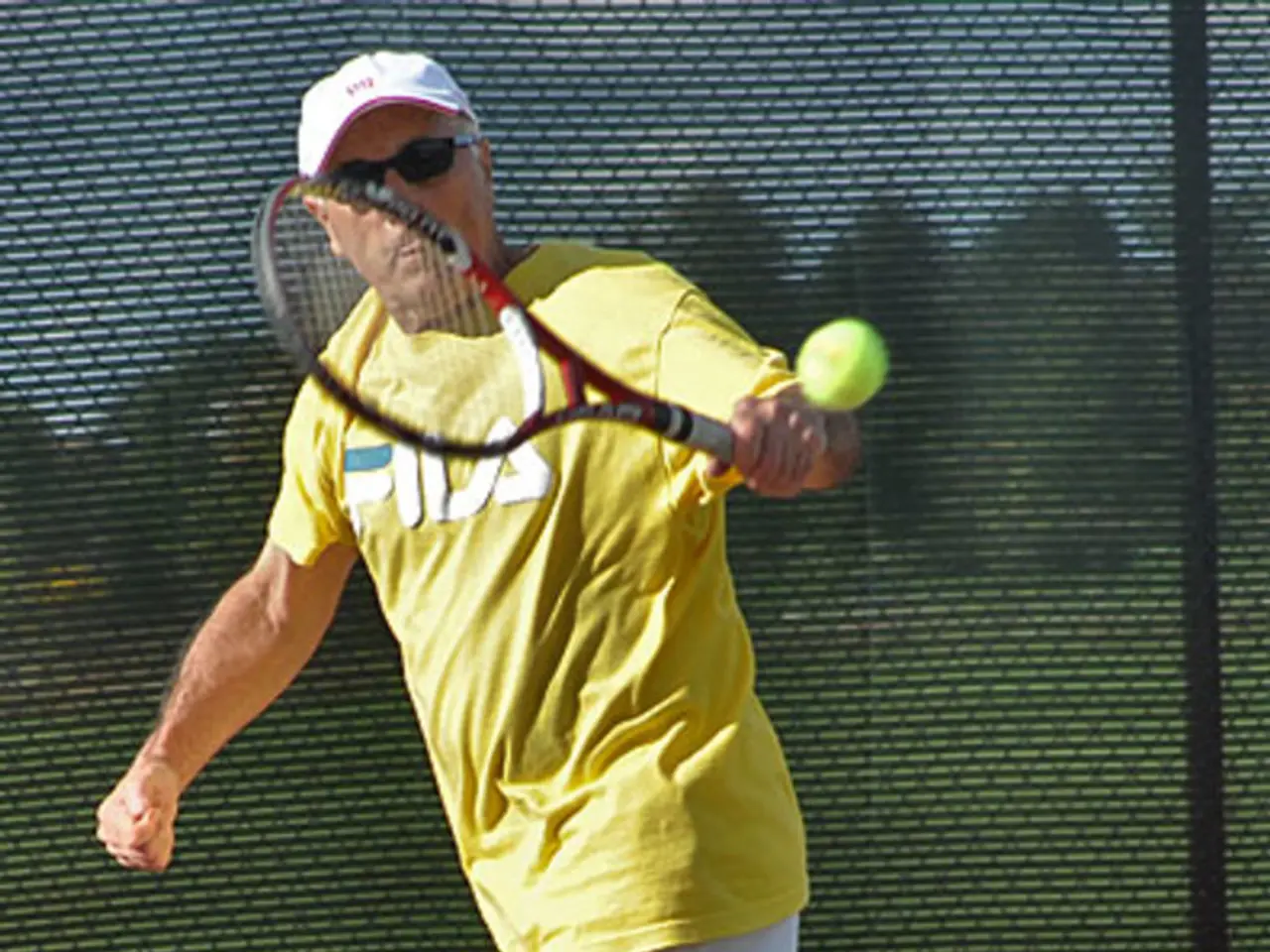Tennis player Zverev discloses struggles with mental issues following his first-round defeat
In a shocking turn of events at this year's Wimbledon, world number three Alexander Zverev experienced an early first-round exit, losing to Arthur Rinderknech in a gruelling five-set match that lasted 4 hours and 40 minutes. This marks Zverev's first first-round exit at a Grand Slam since 2019.
The match resumed the following day after being halted the previous evening due to Wimbledon's noise curfew, which prevents play from continuing into the early morning. Zverev's sister, Tatjana Maria, was also eliminated from the tournament earlier in the day.
Zverev's loss comes amidst persistent mental health struggles that have plagued him since his loss in the final at the 2025 Australian Open. He has openly admitted to feelings of extreme loneliness and emptiness, both on and off the tennis court, and a lack of joy in everything he does, including tennis victories.
In a candid press conference, Zverev acknowledged his mental state, stating, "I have never felt this empty before." He went on to express a lack of motivation in crucial moments during the match. In light of these challenges, Zverev has announced he might seek therapy for the first time in his life, recognising the seriousness of his emotional state and the need for professional help.
This early exit from Wimbledon signifies a notable decline in Zverev's Grand Slam performance, as he reached the final of the Australian Open in 2025 but has struggled to maintain consistent deep runs at majors since. Zverev has never won a Grand Slam tournament, with Wimbledon being the furthest he has progressed (round of 16).
Following his loss, Zverev announced a four-week break from tennis to focus on his mental health. Fellow players like Aryna Sabalenka have publicly encouraged him to open up and seek support, highlighting the importance of mental health for athletes.
As the tennis world continues to grapple with the reality of mental health challenges facing even top athletes, this incident underscores the growing awareness and dialogue around these issues in professional sports. Zverev's courage to speak openly about his struggles serves as a testament to the progress being made in breaking the stigma surrounding mental health in the sport.
Science and health-and-wellness professionals may be consulted by Alexander Zverev in his quest for mental health improvement, given his ongoing struggles and recent announcement of seeking therapy. This development could potentially shed light on the role of mental health in sports performance, contributing to science-based discoveries that promote well-being and protection for athletes' psychological health.
In a effort to support Zverev during his recovery, fellow tennis players and mental health advocates might suggest alternative sports to help him maintain overall health and wellness, with low-impact options like yoga or swimming being options to prevent aggravating his mental state in the midst of a break from competitive tennis.
Zverev's mental health journey highlights an opportunity for increased mental health support in the world of tennis, which has long been associated with sports like tennis but has not yet fully embraced the importance of addressing mental health issues head-on. The dialogue initiated by Zverev's courage to speak out could lead to further investigation into the impact of mental health on sports performance through studies in sports psychology, which could improve support for athletes facing similar challenges in the future.




